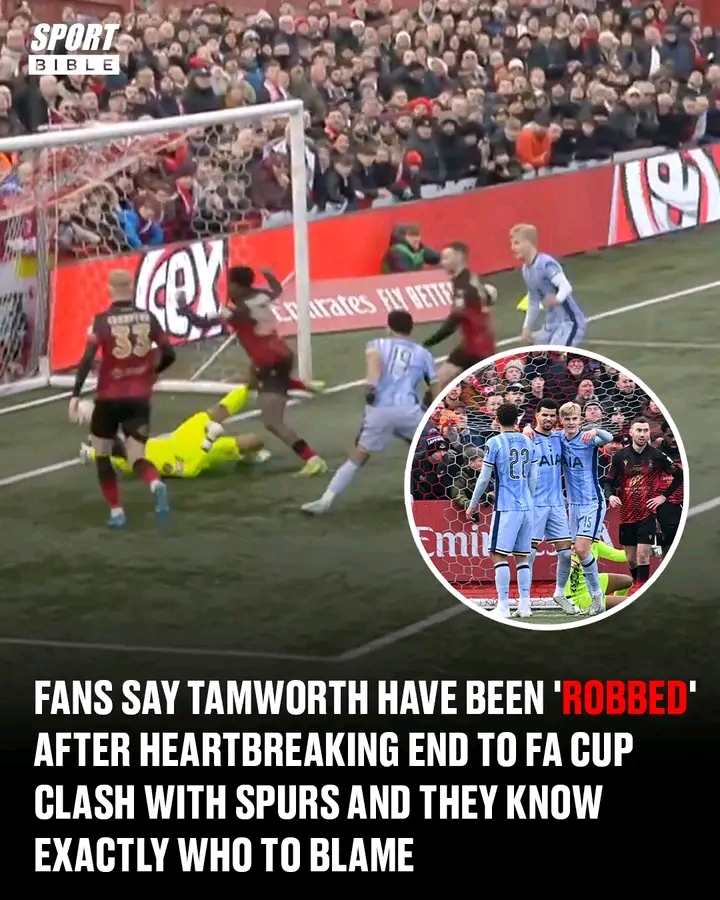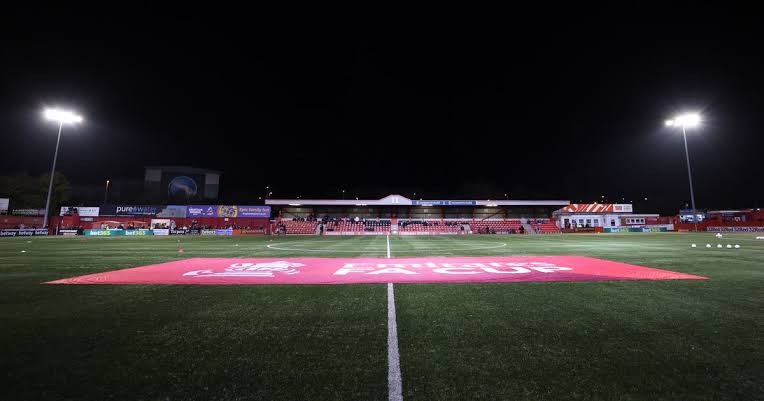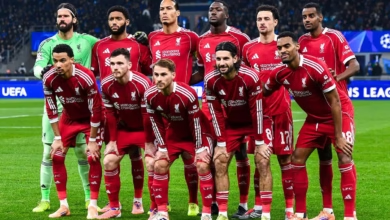Fans claim Tamworth were ‘robbed’ after heartbreaking end to FA Cup clash with Spurs and they know who to blame

In a gripping FA Cup third round encounter that showcased both the magic and controversy of England’s oldest cup competition, non-league Tamworth’s valiant effort against Premier League giants Tottenham Hotspur has sparked intense debate about the recent abolition of cup replays. The dramatic match, which extended into extra time, ultimately ended in heartbreak for the underdogs as Spurs secured a 3-0 victory, but the story has become as much about what Tamworth lost off the pitch as on it.
The turning point came in the 101st minute when Nathan Muya Tshikuna unfortunately turned the ball into his own net, breaking the deadlock that had persisted throughout normal time. Tottenham then capitalized on their advantage, with Dejan Kulusevski and Brennan Johnson adding further goals to secure their progression to the fourth round.
However, the real controversy stems from the recent decision to eliminate FA Cup replays, a change implemented ahead of the 2024/25 season. Under the previous format, Tamworth’s impressive achievement in holding Tottenham to a draw through 90 minutes would have earned them a lucrative replay at the Tottenham Hotspur Stadium. This replay would have not only provided an unforgettable experience for players and fans alike but also delivered a significant financial windfall for the non-league club.
The decision to scrap replays has been traced back to the influence of high-profile Premier League managers, particularly Pep Guardiola and Jurgen Klopp, who had previously advocated for their removal. Guardiola’s statement from January 2020 suggested, “The Carabao Cup and FA Cup will be played. But maybe we could cancel the replays, have less teams in the Championship or Premier League.” Klopp had similarly argued for their elimination, proposing, “Replays in the FA Cup? No, have a penalty shoot-out.”
The fallout from the match has seen fans take to social media to express their dismay at what they perceive as a fundamental undermining of the FA Cup’s traditions and its role in supporting lower-league clubs. One supporter articulated the financial impact, noting that Tamworth had been denied a potential £0.5 million payday and the chance to play at one of football’s finest venues in front of 60,000 fans.
The criticism has been particularly pointed given the context of modern football’s commercialization. Some fans have suggested that the replay system was sacrificed to accommodate an increasingly crowded calendar of international tours and friendly matches. As one supporter sarcastically observed, Tamworth was “robbed of millions by getting rid of replays so that Spurs can play Newcastle in Australia 3 days after the season finishes.”
The physical demands of extra time on a non-league team facing Premier League opposition have also been highlighted as a concern. The disparity in fitness levels and resources between the two teams became increasingly apparent in the additional period, leading many to question whether forcing smaller clubs to play an extra 30 minutes against professionally conditioned athletes truly serves the spirit of the competition
This incident has reignited debate about the broader direction of English football and the increasing influence of elite clubs and managers on the sport’s traditional structures. The FA Cup has historically been celebrated for its ability to create magical moments and provide financial lifelines to smaller clubs, with replays playing a crucial role in this ecosystem.
The timing of the controversy is particularly poignant given Tamworth’s impressive performance against a strong Tottenham side. Their ability to hold one of the Premier League’s top teams scoreless through normal time represents one of the competition’s most remarkable achievements, making the inability to secure a replay all the more frustrating for supporters of traditional cup football.
For Tamworth, the match will be remembered as both a proud moment in the club’s history and a bittersweet reminder of how football’s evolution can sometimes come at the expense of its smaller participants. The financial implications of missing out on a replay at the Tottenham Hotspur Stadium are significant for a club of Tamworth’s size, highlighting the real-world impact of decisions made to accommodate the preferences of the game’s elite level.
The incident has also raised questions about the decision-making process within English football and the degree to which the concerns of smaller clubs are considered when implementing significant changes to historic competitions. The contrast between the financial resources available to Premier League clubs and those fighting for survival in the lower leagues has never been starker.
Looking forward, this controversy may serve as a catalyst for broader discussions about protecting the interests of lower-league and non-league clubs in an increasingly commercialized football landscape. The emotional and financial value of FA Cup replays to smaller clubs has been starkly illustrated by Tamworth’s experience, potentially providing ammunition for those arguing for a reconsideration of the current format.
Despite the disappointment of the result and the missed opportunity for a lucrative replay, Tamworth’s performance against Tottenham will be remembered as a testament to the enduring appeal of the FA Cup and its ability to produce compelling David versus Goliath narratives. However, the controversy surrounding the elimination of replays suggests that the balance between tradition and modernization in English football remains a contentious issue.
For Tottenham, their progression to the fourth round comes with a degree of relief, having been pushed to their limits by their non-league opponents. The experience serves as a reminder of the FA Cup’s capacity to level the playing field and create moments of genuine tension regardless of the teams’ respective standings in the football pyramid.
Yet the lasting legacy of this match may well be the spotlight it has shone on the consequences of modernizing traditional competitions without fully considering the impact on smaller clubs. The financial and experiential loss to Tamworth of missing out on a replay at Tottenham’s stadium represents more than just a missed opportunity – it symbolizes a shifting dynamic in English football that many fear increasingly favors the interests of its biggest clubs at the expense of its smaller ones.
The debate this has sparked is likely to continue, particularly as more such situations arise in future rounds of the FA Cup. Whether this will lead to any reconsideration of the decision to abolish replays remains to be seen, but Tamworth’s experience has certainly provided powerful ammunition for those arguing for the preservation of football’s traditional structures and values.















